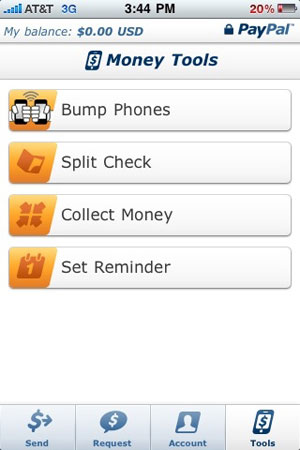Will Smartphone Users Feel NFC Payments Are Safe?
eBay on Thursday announced a giant new strategy for PayPal that it hopes will squash the up-and-coming threat of Apple and Google with near-field communications payments. In one of those karmic twists, earlier this week news broke on the very thing that would let people feel safe enough to outfit their mobile devices with NFC payment systems: identity theft is becoming harder to pull off.
The Nokia 6216 has supported NFC since 2009.
In 2010, the number of identity theft incidents hit their lowest levels in years, according to a new report by Javelin Strategy & Research. The total number of incidents dropped 28 percent and the total annual fraud also decreased to $37 billion from $56 billion the year prior.
On the other hand, the report also showed that when a crook does manage to steal someone's identity, the consumer wound up being stuck for more of the costs. Of the roughly 5,000 consumers interviewed, including 470 fraud victims, consumers reported that they had to cover a mean of $631 of the fraud, compared to $387 in 2009. Javelin says that the reason more money was lost to the victim this year was because crooks moved from grabbing existing account information, having more luck by opening up new accounts under others' names. Identity theft for new accounts tend to take longer to recognize and stop.
Which brings us to eBay. The company met with analysts for the first time in years to sell them on how great a future the company has. There's a threat looming to PayPal, eBay's fastest growing business unit: smartphone payments hardwired into the phone, reports Bloomberg. Apple and Google are both working on enabling NFC, a wireless standard that, among its other potential uses, would allow smartphone owners to wave their phones and, Bob's your uncle, send their credit card info into a store's payment system.
Right now, smartphone owners can download the PayPal application. While it's useful for online shopping on your phone, or splitting a bar tab with your friends (you pick up the tab and then collect your friend's share via PayPal), it doesn't yet allow users to complete checkout line transactions.

Now, there's a reason why giant companies like Amazon and Google haven't been able to knock PayPal from its perch. Security and fraud. Online payments is a hard business to do right. Embedding credit card information into a cell phone that can easily be lost or stolen won't appeal to consumers unless they know that their identities are protected by more than a swipe of a finger.
Ebay was expected to reveal details on how it will improve the mobile version of PayPal, and other services and APIs that let developers access its programs so third-parties can exchange information. While it didn't exactly reveal the details, it did promise to roll-out services by the end of 2011 that will put PayPal at the point-of-sale, somehow support NFC and other wireless technologies built into phones.
"The key to success in mobile is to be technology and platform agnostic. You must support Bluetooth, RFID, NFC, QR Codes. Having one technology is not the answer. Having one digital wallet in the cloud is the answer," said Sam Shrauger, VP of global product and experience, according to a live blog posted by All Things Digital from the event. "We can do for mobile payments, exactly what we did for online payments."
eBay also promised that PayPal would add new options, such as allowing you to change the way you paid, deciding after the sale if you'd rather make installment payments.
As for concrete new services, the one that PayPal rolled out today was another online payment tool, PayPal Digital Goods. This allows online digital content developers (games, music, magazines) to collect fees for their content without making site visitors leave their site and conduct a transaction on PayPal. Super secure NFC it isn't.

